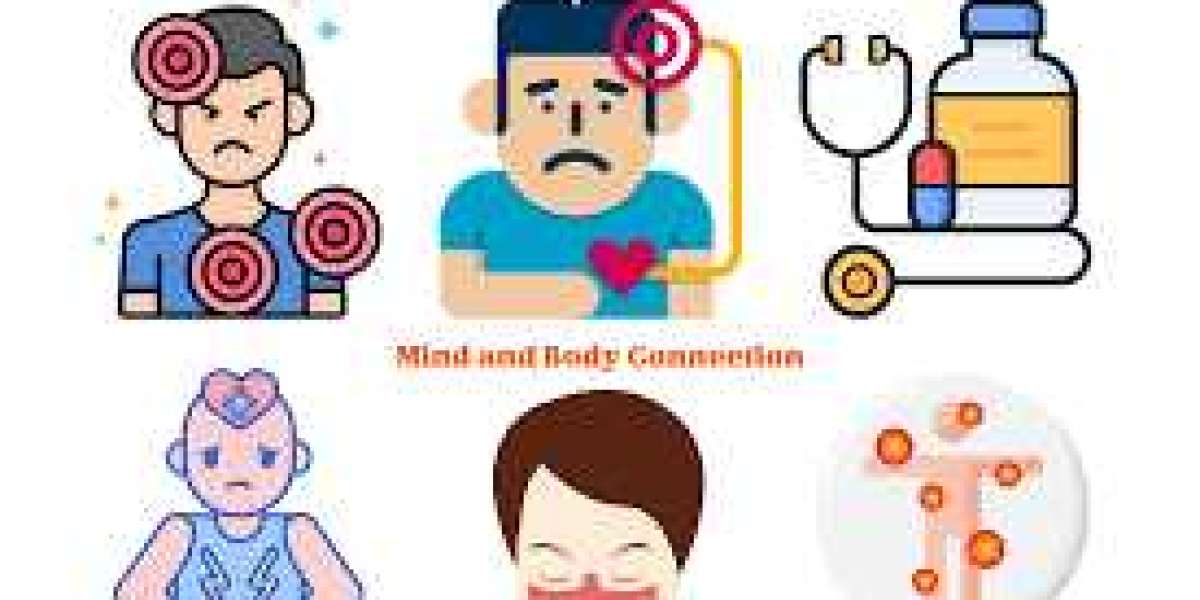In today’s fast-paced world, the connection between mental and physical health is more evident than ever. Stress, anxiety, and emotional turmoil often manifest as physical symptoms, leaving many wondering how their minds and bodies interact. This is where psychosomatic medicine steps in, offering a revolutionary approach to understanding and treating the intricate relationship between psychological factors and physical health. But what exactly is psychosomatic medicine, and how does it bridge the gap between mind and body for holistic healing? Let’s dive deep into this fascinating field and explore its principles, benefits, and real-world applications.
What Is Psychosomatic Medicine?
Psychosomatic medicine is an interdisciplinary field that examines the interplay between psychological, social, and behavioral factors and physical health. The term "psychosomatic" comes from the Greek words "psyche" (mind) and "soma" (body), emphasizing the inseparable connection between mental and physical well-being. This field recognizes that emotional stress, unresolved trauma, and negative thought patterns can contribute to or exacerbate physical illnesses.
Unlike traditional medicine, which often treats symptoms in isolation, psychosomatic medicine adopts a holistic approach. It seeks to address the root causes of illness by considering the patient’s emotional state, lifestyle, and environmental factors. By doing so, it aims to promote healing on both a psychological and physical level.
The Mind-Body Connection: How It Works
The mind-body connection is the Cornerstone of Psychosomatic medicine. Research has shown that our thoughts, emotions, and behaviors can significantly influence our physical health. For example:
Stress and the Immune System: Chronic stress triggers the release of cortisol, a hormone that suppresses the immune system. This makes the body more susceptible to infections, autoimmune disorders, and chronic diseases.
Emotional Trauma and Chronic Pain: Unresolved emotional trauma can lead to conditions like fibromyalgia, migraines, and irritable bowel syndrome (IBS). The brain processes emotional pain similarly to physical pain, often resulting in persistent physical symptoms.
Positive Thinking and Healing: Conversely, positive emotions and a healthy mindset can boost the immune system, accelerate recovery, and improve overall well-being.
Psychosomatic medicine leverages this connection by integrating psychological therapies, lifestyle changes, and medical treatments to address both the mind and body.
Common Psychosomatic Disorders
Psychosomatic disorders are physical conditions that are either caused or worsened by psychological factors. Some of the most common include:
Hypertension (High Blood Pressure): Chronic stress and anxiety can lead to elevated blood pressure, increasing the risk of heart disease and stroke.
Gastrointestinal Disorders: Conditions like IBS, ulcers, and acid reflux are often linked to stress and emotional distress.
Chronic Pain Syndromes: Fibromyalgia, tension headaches, and back pain can be exacerbated by anxiety and depression.
Skin Conditions: Psoriasis, eczema, and acne often flare up during periods of emotional stress.
Cardiovascular Diseases: Stress and negative emotions contribute to the development of heart disease and arrhythmias.
By addressing the underlying psychological factors, psychosomatic medicine can help alleviate these conditions and improve patients’ quality of life.
The Role of Psychosomatic Medicine in Holistic Healing
Holistic healing focuses on treating the whole person—mind, body, and spirit—rather than just the symptoms of a disease. Psychosomatic medicine aligns perfectly with this philosophy by integrating various therapeutic approaches to promote overall well-being. Here’s how it works:
1. Psychological Therapies
Psychosomatic medicine incorporates evidence-based psychological therapies to address emotional and mental health issues. These include:
Cognitive Behavioral Therapy (CBT): Helps patients identify and change negative thought patterns that contribute to physical symptoms.
Mindfulness-Based Stress Reduction (MBSR): Teaches patients to manage stress through mindfulness and meditation.
Psychodynamic Therapy: Explores unresolved emotional conflicts and their impact on physical health.
2. Lifestyle Modifications
Lifestyle plays a crucial role in psychosomatic health. Psychosomatic medicine emphasizes the importance of:
Healthy Eating: A balanced diet rich in nutrients supports both mental and physical health.
Regular Exercise: Physical activity reduces stress, improves mood, and enhances overall well-being.
Adequate Sleep: Quality sleep is essential for emotional regulation and physical recovery.
3. Integrative Medical Treatments
Psychosomatic medicine combines conventional medical treatments with complementary therapies, such as:
Acupuncture: Helps alleviate pain and reduce stress.
Yoga and Tai Chi: Promote relaxation and improve physical flexibility.
Herbal Medicine: Uses natural remedies to support mental and physical health.
4. Patient-Centered Care
Psychosomatic medicine prioritizes the patient’s unique needs and experiences. Practitioners take the time to understand the patient’s emotional state, lifestyle, and environmental factors, creating a personalized treatment plan that addresses all aspects of their health.
Real-World Applications of Psychosomatic Medicine
Psychosomatic medicine has been successfully applied in various healthcare settings, demonstrating its effectiveness in treating a wide range of conditions. Here are some real-world examples:
1. Chronic Pain Management
Patients with chronic pain often experience significant emotional distress, which can worsen their symptoms. Psychosomatic medicine addresses both the physical and emotional aspects of pain, using therapies like CBT, mindfulness, and biofeedback to reduce pain and improve quality of life.
2. Cancer Care
Cancer patients frequently face anxiety, depression, and stress, which can impact their recovery. Psychosomatic medicine provides emotional support and stress management techniques, helping patients cope with the psychological challenges of cancer treatment.
3. Cardiovascular Health
Stress and negative emotions are major risk factors for heart disease. Psychosomatic medicine incorporates stress reduction techniques, lifestyle changes, and psychological therapies to improve cardiovascular health and prevent heart attacks.
4. Gastrointestinal Disorders
Patients with IBS and other gastrointestinal conditions often benefit from psychosomatic approaches. Therapies like hypnotherapy, relaxation techniques, and dietary changes can significantly reduce symptoms and improve digestive health.
The Science Behind Psychosomatic Medicine
The effectiveness of psychosomatic medicine is supported by a growing body of scientific research. Studies have shown that:
Mindfulness Meditation: Reduces stress, lowers blood pressure, and improves immune function.
Cognitive Behavioral Therapy: Alleviates symptoms of depression, anxiety, and chronic pain.
Biofeedback: Helps patients gain control over physiological processes like heart rate and muscle tension.
These findings underscore the importance of addressing psychological factors in the treatment of physical illnesses.
How to Incorporate Psychosomatic Principles into Your Life
You don’t need to be a medical professional to benefit from psychosomatic principles. Here are some practical tips to integrate mind-body healing into your daily routine:
Practice Mindfulness: Spend a few minutes each day meditating or practicing deep breathing exercises.
Stay Active: Engage in regular physical activity, such as walking, yoga, or dancing.
Eat a Balanced Diet: Focus on whole, nutrient-rich foods that support both mental and physical health.
Prioritize Sleep: Aim for 7-9 hours of quality sleep each night.
Seek Emotional Support: Talk to a therapist or counselor if you’re struggling with stress, anxiety, or emotional trauma.
The Future of Psychosomatic Medicine
As awareness of the mind-body connection grows, psychosomatic medicine is poised to play an increasingly important role in healthcare. Advances in neuroscience, psychology, and integrative medicine are paving the way for more effective treatments and a deeper understanding of how our thoughts and emotions impact our physical health.
By embracing the principles of psychosomatic medicine, we can move toward a more holistic approach to healing—one that recognizes the profound connection between mind and body and empowers individuals to take control of their health.
Conclusion
Psychosomatic medicine offers a transformative approach to health and healing, bridging the gap between mind and body to address the root causes of illness. By integrating psychological therapies, lifestyle changes, and medical treatments, it provides a comprehensive framework for holistic well-being. Whether you’re dealing with chronic pain, stress-related conditions, or simply seeking to improve your overall health, psychosomatic medicine holds the key to unlocking your full potential.







